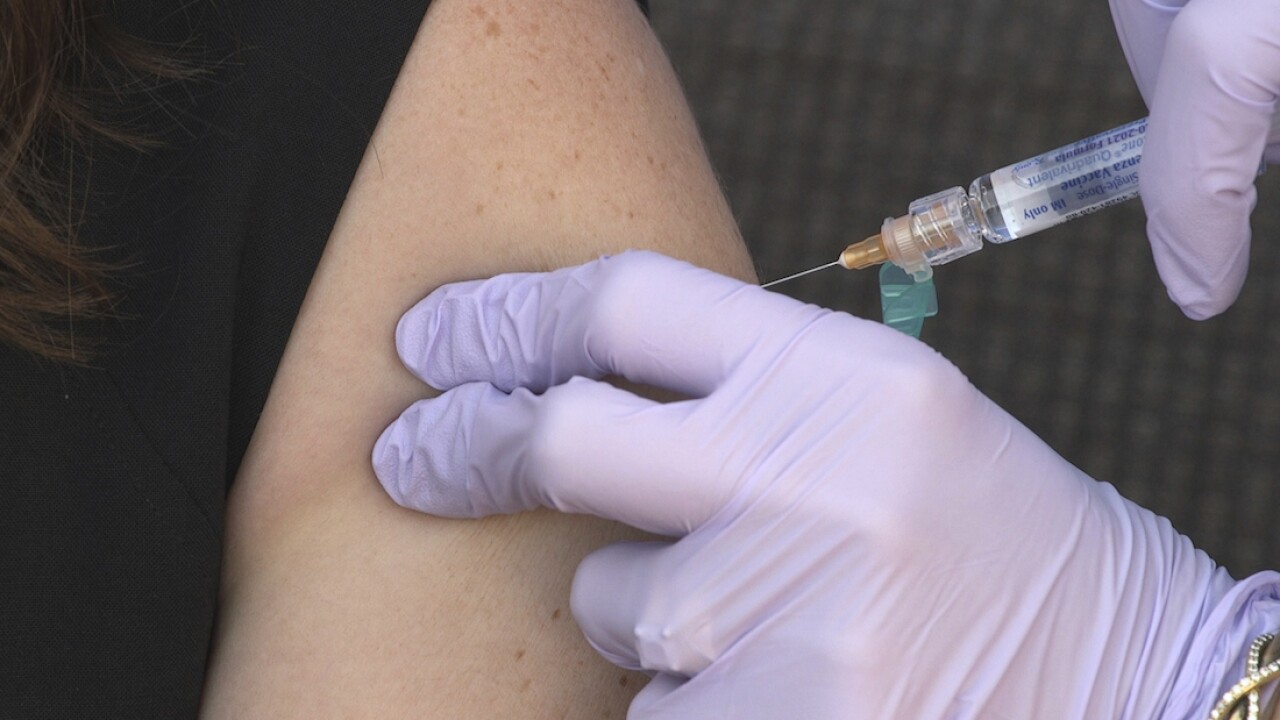LANSING, Mich. — Michigan Department of Health and Human Services announced Friday new information about vaccine distribution plans, including who will be prioritized for each phase.
Officials have set a goal of vaccinating 70% of Michiganders 18 years of age and older – about 5.4 million adults – by the end of 2021, a news release said.
SEE MORE: Coronavirus in West Michigan
MDHHS is following Centers for Disease Control and Prevention recommendations for prioritization of vaccine distribution and administration.
Phases will be as follows:
Phase 1A includes paid and unpaid people serving in health care settings who have direct or indirect exposure to patients or infectious materials and are unable to work from home, as well as residents of long-term care facilities.
Phase 1B includes some workers in essential and critical industries, including workers with unique skill sets such as non-hospital or non-public health labs and mortuary services.
Phase 1C includes people at high risk for severe COVID-19 illness due to underlying medical conditions, and people 65 and older.
Phase 2 is a mass vaccination campaign for all adults.
Vaccination in one phase may not be complete before vaccination in another phase begins.
The timing of the start of vaccination in a phase will depend on guidance from the CDC and ACIP, the supply of vaccine from the manufacturer, how vaccine is allocated from the federal level to Michigan and the capacity to administer the vaccine to populations.
By current estimates, enough vaccines will be available by late Spring 2021 for everyone who is recommended to receive it.
Hospitals, pharmacies, local health departments, EMS providers, outpatient clinics and the Michigan National Guard will all be involved in helping with vaccine administration.
There will be no out-of-pocket costs to individuals for the vaccine, but health care providers may bill insurance for administrative costs.
The Michigan Care Improvement Registry (MCIR) will keep a record of doses provided to ensure no one is over- or under-vaccinated.
Dr. Joneigh Khaldun says it is not recommended that pregnant women receive the vaccine.
MDHHS says Michiganders should continue to wear masks, social distance from those not in their household and wash their hands often, even after receiving the vaccine.
“[Vaccine distribution] means that the end of the pandemic is near,” says Dr. Khaldun.
State health officials ask residents to visit Michigan.gov/COVIDVaccine for the latest information.
SEE MORE: Whitmer: 'No conversations' about COVID-19 vaccine mandate
SEE MORE: US panel endorses widespread use of Pfizer COVID-19 vaccine
SEE MORE: Pfizer workers in Michigan ready to send out doses of COVID-19 vaccine upon approval


